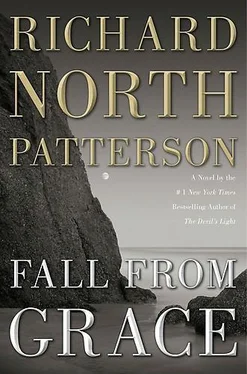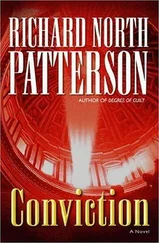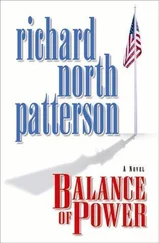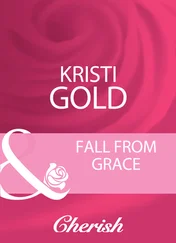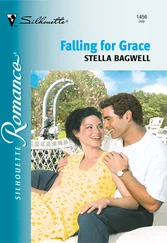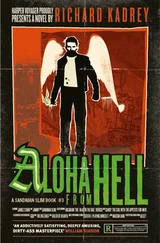Richard Patterson - Fall from Grace
Здесь есть возможность читать онлайн «Richard Patterson - Fall from Grace» весь текст электронной книги совершенно бесплатно (целиком полную версию без сокращений). В некоторых случаях можно слушать аудио, скачать через торрент в формате fb2 и присутствует краткое содержание. Жанр: Триллер, на английском языке. Описание произведения, (предисловие) а так же отзывы посетителей доступны на портале библиотеки ЛибКат.
- Название:Fall from Grace
- Автор:
- Жанр:
- Год:неизвестен
- ISBN:нет данных
- Рейтинг книги:5 / 5. Голосов: 1
-
Избранное:Добавить в избранное
- Отзывы:
-
Ваша оценка:
- 100
- 1
- 2
- 3
- 4
- 5
Fall from Grace: краткое содержание, описание и аннотация
Предлагаем к чтению аннотацию, описание, краткое содержание или предисловие (зависит от того, что написал сам автор книги «Fall from Grace»). Если вы не нашли необходимую информацию о книге — напишите в комментариях, мы постараемся отыскать её.
Fall from Grace — читать онлайн бесплатно полную книгу (весь текст) целиком
Ниже представлен текст книги, разбитый по страницам. Система сохранения места последней прочитанной страницы, позволяет с удобством читать онлайн бесплатно книгу «Fall from Grace», без необходимости каждый раз заново искать на чём Вы остановились. Поставьте закладку, и сможете в любой момент перейти на страницу, на которой закончили чтение.
Интервал:
Закладка:
To Adam’s surprise, tears sprung to Teddy’s eyes. “That’s not what I’m saying, you fucking moron. I’m afraid for you.”
Adam touched the bridge of his nose. “That makes two of us, Teddy.”
“So don’t go back there, for chrissakes.”
“I have to,” Adam responded. “Survive for six more months, and I’m out. I plan on leaving upright. Good enough?”
Slowly, Teddy nodded.
Adam looked him in the face. “There’s also something about an insurance policy. Whatever it is, tell your lawyer.”
Teddy’s eyes went blank, and then he nodded. “I promise I’ll call him, Adam. All you have to promise in return is to get out of Afghanistan alive.”
“Don’t ask for much, do you?”
“Seems like a lot to me,” Teddy replied. “Six months from now, I want to be sitting in Mom’s house, looking at you across the dinner table. That’ll mean that we’ve all survived him.”
There was nothing more for Adam to say.
That night he awakened from his nightmare, sweating, still seeing his father’s face on his shattered body. He could not escape this, Adam realized, nor did he believe that he could keep his promise to Teddy. All that mattered to him now was that Teddy keep his.
Seven
At dawn, Adam took the first Cape Air flight to Boston, and met Dr. Lee Zell for coffee at the bar of the Taj hotel.
The two men sat at a table by the window. Across Arlington Street, students and tourists and nannies with strollers wandered through the Public Garden or sat beneath willow trees enjoying the flowers, the lush green grass, the swan boats on the pond. But the specialist Ben’s doctor had referred him to seemed edgy. Though esteemed as a neurosurgeon, Zell looked younger than Adam expected, with thinning brown hair and dark liquid eyes that conveyed a nameless discomfort with the man across the table-perhaps, in part, because he so deeply resembled the doctor’s now-dead patient. Abruptly, Zell said, “I know you’re entitled to ask about your dad’s treatment. But I’m not anxious to be sued.”
“I’m not here for that,” Adam said flatly.
“Still, let’s be direct. Given that he’s disinherited your mother, her quickest route to financial recovery is a wrongful death suit against his doctors-”
“Wasn’t he a dead man?” Adam interrupted. “No matter what you did?”
“I believe so, yes.”
“Then you can relax, Doctor-dead men lack earning potential. My father’s demise didn’t prevent him from writing another ten novels, or even one. Just how long did he have?”
Zell bit his lip. “With the most sophisticated treatment,” he said slowly, “thirteen months or so. But that’s not the path your father chose.”
This surprised Adam. He sipped his coffee, then said, “I’m chiefly interested in how the disease affected his cognition and mental acuity-”
“Can I ask why?”
“As executor, I’m charged with carrying out his wishes. That will is being contested-by my mother, as it happens. I’m obligated to find out why he concealed his cancer, behaved bizarrely, and left his estate to a woman he’d just met.”
Zell seemed to relax a little, and his expression changed from wariness to regret. “I saw him only twice-the first time six months ago, the second two weeks later. He’d complained to his doctor on Martha’s Vineyard about migraine headaches that impaired his ability to write. So I checked his reflexes, which were normal, and determined that his physical condition was that of a man twenty years younger.” Zell smiled a little. “Your father said he wasn’t interested in dying. So he’d worked like hell to keep himself vital.”
Adam could imagine this; even in his forties, his father could hear death’s footsteps. The thing about dying, he told Adam once, is that there’s no future in it. I mean to live a crowded hour until I drop. Softly, Adam said, “Death terrified him.”
Zell nodded. “I saw that after I reviewed the MRI on his brain and called him in again.” The doctor paused, recalling the moment. “I told him he had a brain tumor. Your father sat back, closing his eyes. Then he said, ‘This is the end for me, isn’t it?’
“I conceded that it might be, but that the next step was to drill a hole in his skull and remove a sample of brain tissue. That would tell us whether, as seemed likely, the tumor was malignant. Then we could decide what to do.”
Looking out at the brightness of a summer morning, Adam imagined his father in this doctor’s office, realizing that the world outside-his life of joys and conquests, adventures and adulation-could be taken from him by an enemy lodged within the brain that made him who he was. “How did he react?”
Zell paused again, searching for words. “The haunted look seemed to vanish. Then he said, ‘I can’t die.’ As though the thought of dying was foreign to him, and he refused to allow it.”
“You describe my father as I knew him,” Adam observed. “Some people assess the facts confronting them and adjust their behavior accordingly. My father focused on what he wanted and willed it to be so.”
Zell stirred more sugar in his coffee, his long, graceful fingers holding the stirrer as though it were a scalpel. “I know. I damn near had to challenge his manhood to make him sit and listen to his alternatives.”
“Which were?”
“One was radiation to shrink the tumor. That could at least relieve the symptoms.” Zell looked up at Adam. “But radiation would be palliative, not curative, and could also dull cognition. And no doctor would prescribe radiation until there was a biopsy.”
“He never had one, did he?”
“No,” Zell answered flatly. “He said there was no way anyone was drilling a hole in his head. He didn’t want to walk into a room, he said, and have people seeing a dead man-”
“Without treatment, they’d be seeing one quick enough.”
“Maybe so, but on your father’s terms. That’s why he ruled out the second alternative-surgery followed by radiation. One risk of surgery is that it might impair vision, impacting his ability to write. Worse, it could inflict serious damage on his cognition, comprehension, and speech. Worst of all, it could cause strokes or excessive bleeding, both potentially fatal. And the follow-up treatment-chemotherapy-could impair his mental and physical functioning. ‘In other words,’ your father interrupted, ‘you could gain me three months as a vegetable who can’t find his own limp dick. Unless you kill me outright.’”
Despite himself, Adam laughed briefly. “I feel for you, Doctor. I can see this all too well.”
Zell nodded. “The atmosphere between us was visceral. This man lived through his mind and body, and I was trying to steal them both. Then he said, ‘There’s a woman, Doctor. So tell me this-if you buy me a few more months by invading my brain with knives and chemistry, will I be the man I’ve been?’”
Adam tried to grasp what had terrified his father more: struggling to comprehend his world-or, fully cognizant, to look at Carla Pacelli knowing that he could never have her again. “Death may have no future,” he said, “but you forced him to imagine a living hell.”
“By his lights, yes. I told him that sexual function would likely be over. He looked me in the face and said, ‘It will be over when I’m dead.’ As though we were enemies, and I was bent on stripping him of every scrap of his being.”
“So he decided against treatment.”
Zell’s gaze at his coffee was thoughtful. “No. Instead we entered into a negotiation over the nature and extent of your father’s remaining time on earth. At length, we decided on oral chemotherapy. Prednisone and Temador.”
“Why that?”
Читать дальшеИнтервал:
Закладка:
Похожие книги на «Fall from Grace»
Представляем Вашему вниманию похожие книги на «Fall from Grace» списком для выбора. Мы отобрали схожую по названию и смыслу литературу в надежде предоставить читателям больше вариантов отыскать новые, интересные, ещё непрочитанные произведения.
Обсуждение, отзывы о книге «Fall from Grace» и просто собственные мнения читателей. Оставьте ваши комментарии, напишите, что Вы думаете о произведении, его смысле или главных героях. Укажите что конкретно понравилось, а что нет, и почему Вы так считаете.
